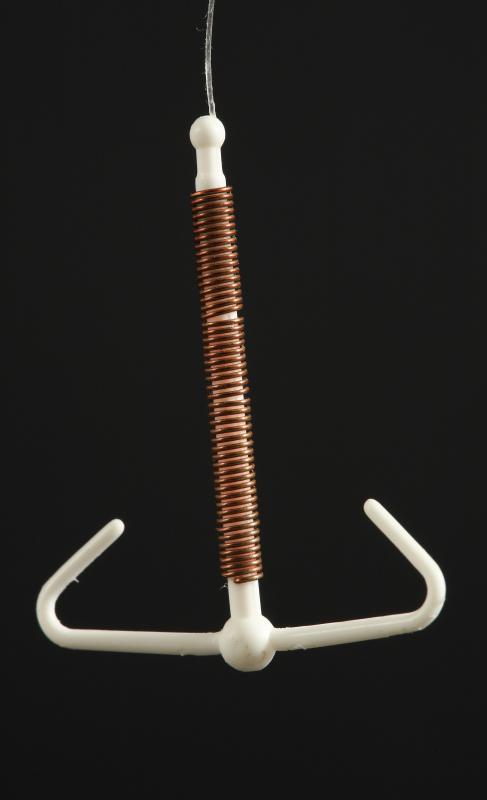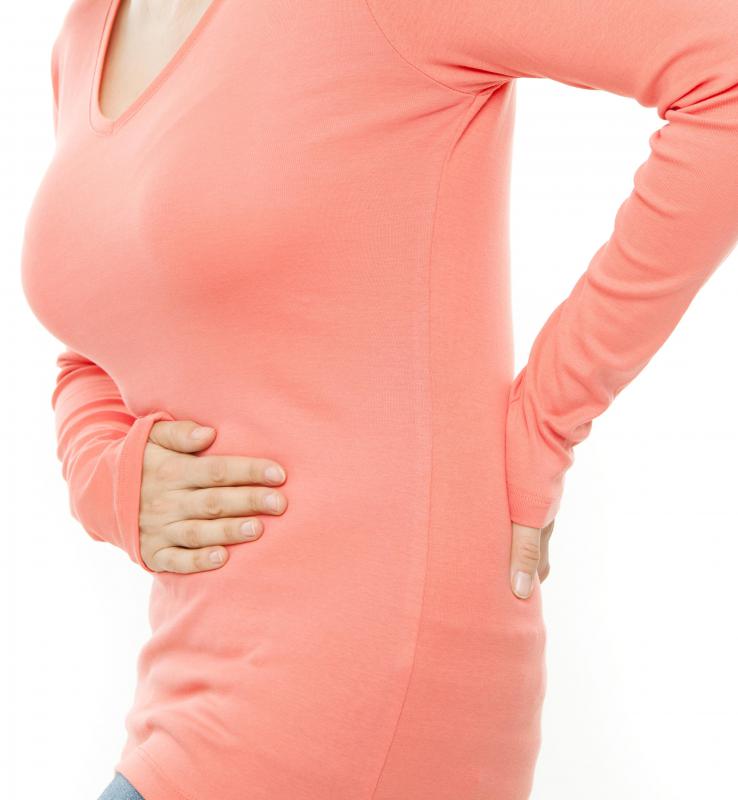At TheHealthBoard, we're committed to delivering accurate, trustworthy information. Our expert-authored content is rigorously fact-checked and sourced from credible authorities. Discover how we uphold the highest standards in providing you with reliable knowledge.
Is There a Connection Between Use of an IUD and Weight Gain?
A connection between the standard copper IUD and weight gain is not established. Internet users may find a few anecdotal claims about how this intrauterine device, called ParaGard® in the U.S., is linked to sudden weight gain after insertion. By IUD, people may also be referring to the intrauterine contraceptive (IUC) device, called Mirena®, which differs from ParaGard® because it releases hormones into the body. It tends to cause weight gain in about 5% of users.
One anecdotal story is that the copper IUD raises cortisol levels, connecting copper IUD and weight gain inextricably. Despite the convincing nature of this argument, numerous clinical trials have found that non-hormonal IUDs are unlikely to cause weight gain. If women report weight gain with this contraceptive, there is typically some other causal factor. For example, insertion of an IUD can cause cramping, more menstrual cramps and much longer periods, and these might correspond to reducing activity, which could, in turn, result in weight gain.

A Mirena® IUC or IUD and weight gain are at least minimally connected. One in five women using this device are likely to experience some small gain of weight. For most women, this gain is slight, but some women have reported significant and rapid weight gain. If women have used hormonal birth control in the past and gained weight on it, they may have some sense of how they might react to an IUC. Fortunately, if weight gain becomes concerning, removal of an IUD or IUC can be accomplished quickly in a visit to the doctor.

As with the pill, many women choose to get an IUC because of its convenience and effectiveness. Mirena® has also been shown to be effective in reducing very heavy periods, though this benefit doesn’t show up until several months after insertion. The issue of a connection between IUD and weight gain may be a lesser concern because of the benefits of this contraceptive.

There are side effects for both ParaGard® and Mirena®. They also are expensive and not always covered by insurance; women are advised to research these two contraceptive methods carefully. Since using a copper IUD and weight gain is not connected, women may want to consider the benefits of this birth control over an IUC, if weight gain is a concern. When selecting either of these methods, it’s important to eat a healthy diet and get plenty of cardiovascular exercise. This may help minimize any gain in weight and supports an overall, healthy lifestyle.
AS FEATURED ON:
AS FEATURED ON:
















Discussion Comments
Mirena causes all kinds of side effects, including hormonal imbalances, estrogen dominance, silicone and copper toxicity, etc. I recommend everyone who is serious about stopping all their unbearable side effects to look it up.
And even though it's not hormonal, it can cause similar effects on your system -- that is, it messes with your menstrual cycle. You can have cramps, bleeding between periods, even painful intercourse. That said, I have a friend who used it and she *loved* it! I'd had painful periods and painful intercourse in the past, though, so I wanted to avoid that.
If your family is complete at three, I don't see why you *wouldn't* do something permanent, like Essure or vasectomy for your husband.
Weight gain may not be the only reason to avoid hormonal birth control like birth control pills, patches, Mirena, etc. Women may find that they are not able to get pregnant as quickly as they had hoped once they go off the birth control. For my sister, it seemed to take about ten months for her periods to return to normal and then another six months before she actually got pregnant.
I hope to have my third child in the next couple of years and that will complete my family, so I'm looking at long-term options like a copper IUD or maybe Essure. Does ParaGuard have unpleasant side effects besides weight gain?
Post your comments